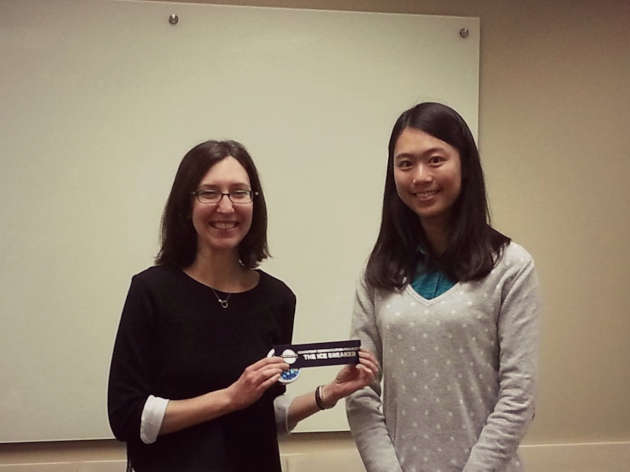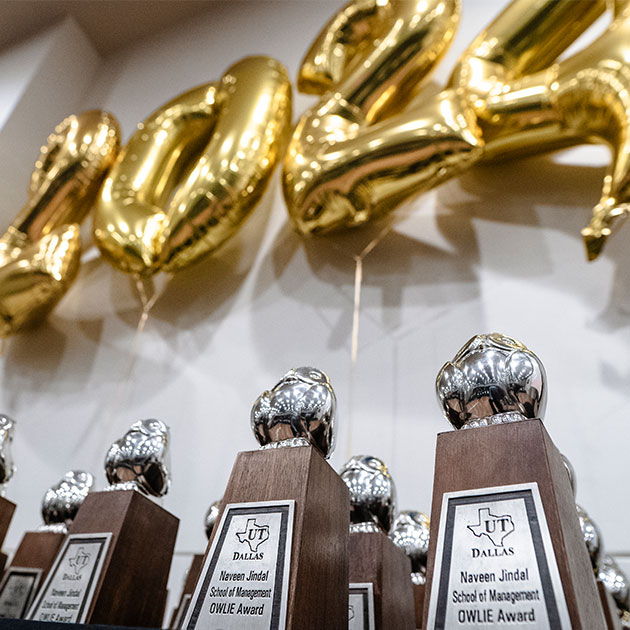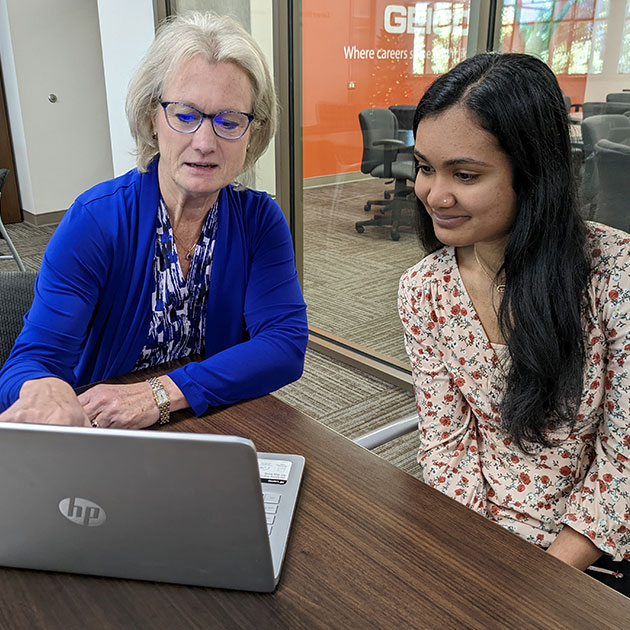
When someone tells me they enjoy running in the cold, sleeping in a tent or watching television in real-time, I have one thought: “Someone actually likes these things?”
I imagine some people have a similar thought when I say I enjoy public speaking. Because while some people clamor for an audience, others downright fear it. According to the 2015 Chapman University Survey of American Fears, public speaking ranks as the second-highest reported “personal anxiety” fear, behind reptiles and just ahead of heights.
My relationship with public speaking falls somewhere in the middle. I enjoy it, though that doesn’t keep my stomach from knotting up before every presentation. And it is an area where I constantly seek to improve.
Last semester I joined the University Toastmasters club of Toastmasters International as a way to challenge myself, learn techniques for giving more engaged speeches and build confidence as a communicator.
While I am still only a few months into my membership, I have already learned some valuable lessons regarding communication:
Thinking on your feet can be learned. In addition to delivering prepared speeches, a portion of every Toastmasters meeting is dedicated to “Table Topics.” Here, you are asked a random question and must respond for one to two minutes. My heart rate is 10 times faster during this portion than when I give a speech. With a speech, I am prepared. I chose and researched the material, and I am confident I know what I am talking about.
But what about when you are at an event or a job interview or a networking reception, and someone asks your thoughts on a topic you didn’t walk in prepared to discuss? Even when you don’t have the perfect response in terms of content, it is still important that your answer is communicated clearly and concisely. The competence to think “off the cuff” is an important one in business and one I encourage you to practice, no matter your public speaking ability. Don’t shy away from situations where you might be faced with small talk or impromptu conversations. Every time you do it, you will feel more equipped for the next time, just as I do after each Toastmasters meeting.
Giving feedback is more difficult than giving a speech. For everyone who delivers a speech in a Toastmasters meeting, there is another member evaluating them. I personally believe the evaluators are the most important people at the meeting. What good is practicing if you never receive any feedback for how you are doing? You may just keep practicing the “wrong” thing!
Honing your feedback skills is essential as you work on teams and supervise others. An evaluation is not haphazard and reactive, but rather thoughtfully designed to motivate and improve the person’s skills. And it takes practice and observation. Pay attention when a professor or manager is giving you feedback — not just in what they tell you, but how they tell you. It’s easy to think you are not experienced enough to give a critique to anyone else, but Toastmasters has reinforced to me that we can learn from anyone.
Choosing a speech topic is a journey in self-reflection. It makes sense that if you enjoy your topic, your speech will be better. You will likely be more confident, more enthusiastic and more effective in connecting to your audience.
The search for a talk’s subject is a learning process in itself. I have discovered areas that really excite me and make me want to dive further into them. I watch the news or read an interesting article and think about how I could incorporate that into a talk. My mind is more open, and in turn, I see possibilities of future projects, both personally and professionally. It’s a great way to practice a topic for work, a class presentation, thesis proposal or perhaps your future TED talk. The next time you are given a choice in what you write or speak about, really pay attention to where you gravitate.
I could go on and on with what I’ve learning, but the key word in all of the lessons is PRACTICE. Very few people are born with a natural ability to captivate a room or get through a five-minute speech without a few “umms” and “likes.” Even the most experienced speakers can lose their place or have a momentary freeze. Organizations like Toastmasters — and all of the presentations you are asked to do in your classes — do not promise you will become an expert orator or execute flawless speeches. Rather, they arm you with the skills and confidence to overcome your mistakes and fears of public speaking so you are better prepared for a world looking for great communicators!
In addition to the University Toastmasters club (open to faculty and staff, as well as students), JSOM students and alumni can also participate in the Jindal Toastmasters club. You can visit a meeting as a guest as often as you would like to see if it is right for you before you join!






